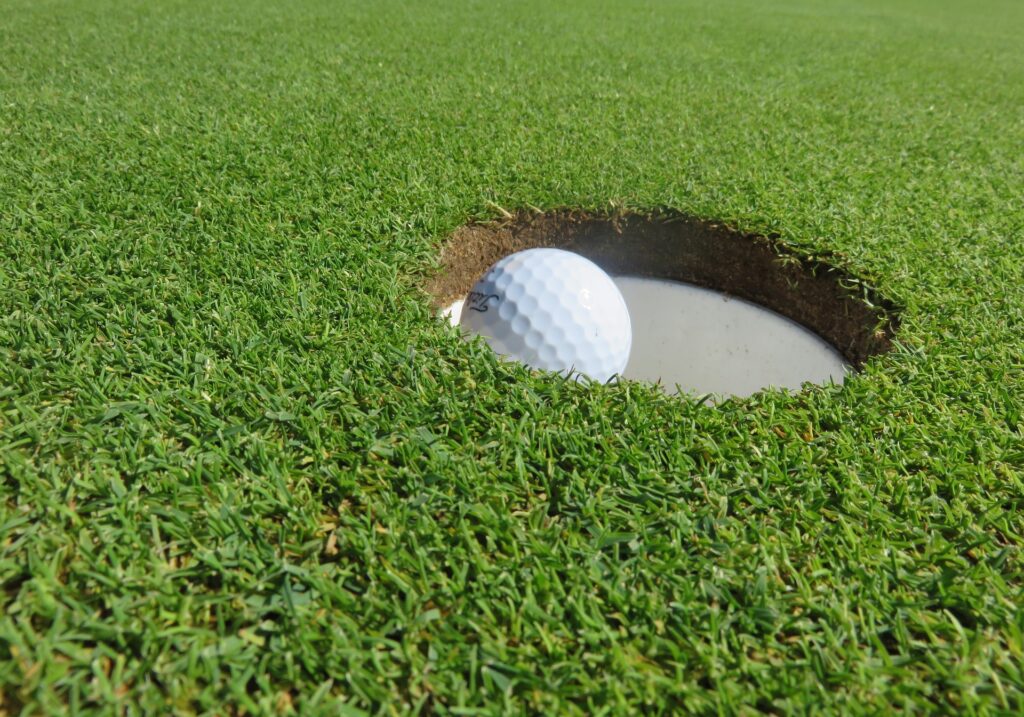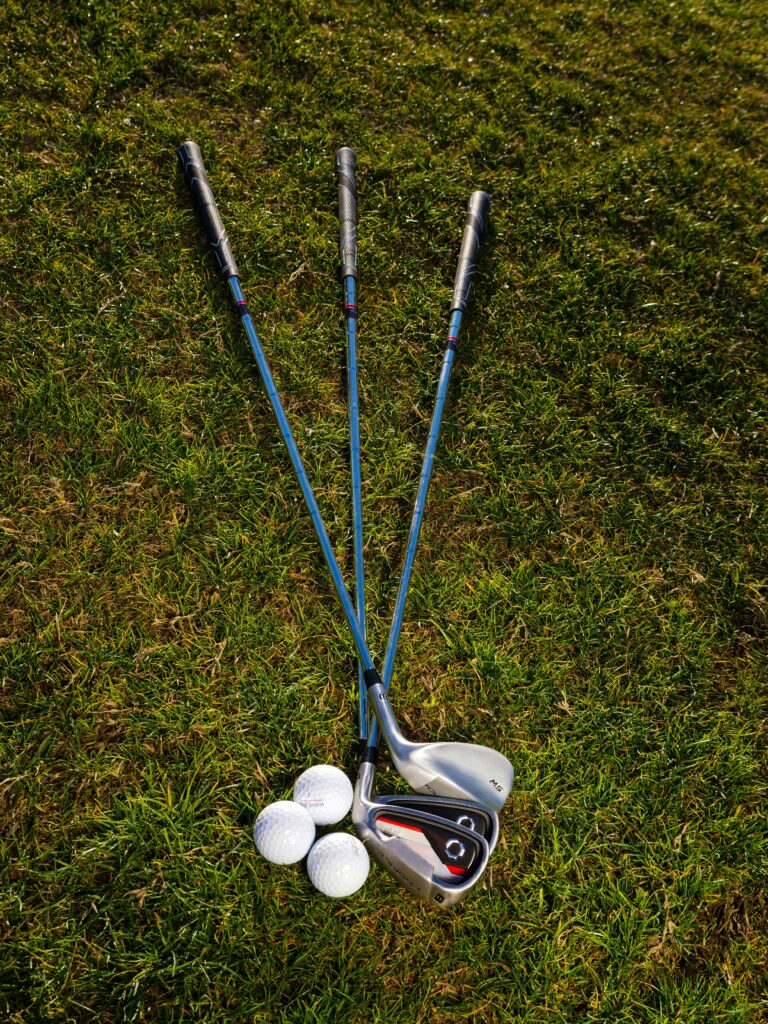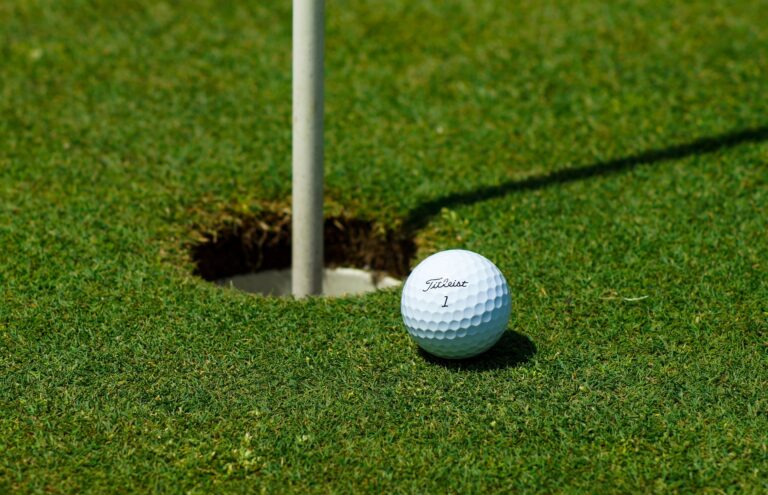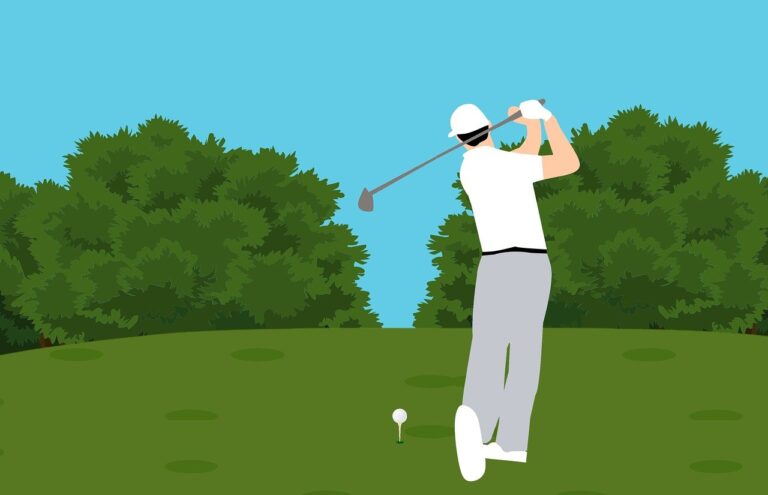What is a birdie in golf
Golf, a sport with a rich history and unique terminology, has captivated players and spectators alike for centuries. One term often heard in conversations among golf enthusiasts is “birdie.”
This article will explore the meaning, origin, and significance of the term, as well as offer tips to improve your chances of scoring birdies and discuss some famous birdie moments in golf history. So, let’s dive in!
What is a birdie in golf?

So, exactly what is a birdie in golf? A birdie in golf refers to completing a hole in one stroke less than par. Par is the predetermined number of strokes that an expert golfer is expected to take to complete a hole. For example, if a hole has a par of 4, scoring a birdie would mean finishing the hole in just 3 strokes.
Scoring a Birdie.
Origin of the Term Birdie.
The origin of the term “birdie” in golf can be traced back to a specific event that occurred at the Atlantic City Country Club in 1903.
According to a widely accepted story, the term was coined by American golfer Ab Smith during a round with his friends George Crump and William Poultney Smith.
The story was recounted by Ab Smith himself in a 1931 interview with the “Atlantic City Review-Journal.” In the interview, Smith described how he hit an excellent approach shot that landed very close to the hole.
He then exclaimed, “That was a bird of a shot!” His friends agreed, and they began using the term “bird” to describe a shot or score that was one stroke under par. Over time, the term evolved into “birdie,” which is now widely used in the golf world.
It’s important to note that while this story is widely accepted as the origin of the term “birdie,” it’s difficult to verify with complete certainty. However, the interview with Ab Smith and the subsequent retelling of the story in various golf publications lend credibility to this account.
Source: “Atlantic City Review-Journal,” 1931, interview with Ab Smith.
Importance of Birdies in Golf.
Birdies play a crucial role in golf as they help players lower their overall scores and gain a competitive edge.
Scoring birdies consistently is a sign of a skilled golfer, as it demonstrates mastery over various aspects of the game, such as driving, approach shots, and putting. In professional tournaments, birdies can often be the difference between winning and losing.
How to Improve Your Chances of Scoring Birdies.
Pre-shot Routine.
Developing a consistent pre-shot routine can help you stay focused and maintain a rhythm during your round. A good routine includes aligning your body, taking practice swings, and visualizing your shot.
Focus and Visualization.
Practicing mental focus and visualizing your shots before you take them can help improve your accuracy and consistency on the course.
Proper Club Selection.
Understanding your strengths and choosing the right club for each shot can significantly impact your chances of scoring birdies.
Short Game Skills.
Improving your short game, including chipping and putting, can greatly increase your chances of scoring birdies. Dedicate practice time to honing these skills and watch your birdie count increase.
Confidence and Positivity.
Maintaining a positive attitude and believing in your abilities can help you stay relaxed and perform better on the course. Confidence plays a significant role in successfully executing challenging shots and scoring birdies.
Famous Birdie Moments in Golf History.
Throughout golf history, there have been numerous memorable birdie moments. Some of the most notable include Tiger Woods’ incredible chip-in birdie on the 16th hole at the 2005 Masters Tournament and Justin Thomas’ record-breaking birdie on the 9th hole at the 2017 U.S. Open, which helped him set the lowest score in relation to par in U.S. Open history.
Birdie vs. Other Golf Terms.
In golf, various terms are used to describe different scoring situations. Understanding these terms is essential for anyone interested in the sport. Below is a comparison of a birdie to other common golf terms.
Birdie
As previously mentioned, a birdie is scored when a golfer completes a hole in one stroke less than par. For example, if a hole has a par of 4, a birdie would be achieved by finishing the hole in just 3 strokes.
Par.
Par is the predetermined number of strokes that an expert golfer is expected to take to complete a hole.
Each hole on a golf course is assigned a par based on its length and difficulty. Consistently achieving par or better is the goal of most golfers.
Bogey.
A bogey occurs when a golfer completes a hole in one stroke more than par. For instance, if a hole has a par of 4, a bogey would be scored by finishing the hole in 5 strokes. Bogeys represent less-than-ideal outcomes and can negatively impact a golfer’s overall score.
Double Bogey.
A double bogey is scored when a golfer finishes a hole in two strokes more than par. Using the previous example, if a hole has a par of 4, a double bogey would be achieved by completing the hole in 6 strokes. Double bogeys are even more detrimental to a golfer’s overall score than bogeys.
Eagle.
An eagle is scored when a golfer completes a hole in two strokes less than par. For example, if a hole has a par of 5, an eagle would be achieved by finishing the hole in just 3 strokes. Eagles are less common than birdies and represent a significant accomplishment in golf.
Albatross (Double Eagle).
An albatross, also known as a double eagle, is achieved when a golfer completes a hole in three strokes less than par.
For instance, if a hole has a par of 5, an albatross would be scored by finishing the hole in just 2 strokes. This feat is extremely rare and considered one of the most impressive accomplishments in golf.
Hole-in-One.
A hole-in-one occurs when a golfer completes a hole in just one stroke. This remarkable achievement is most commonly achieved on par-3 holes, where the golfer is expected to reach the green with their tee shot. Hole-in-ones are rare and celebrated events in golf.
It’s incredibly important for anyone interested in the game of golf to understand these golf terms such as birdie, par, bogey, double bogey, eagle, albatross, and hole-in-one.
These terms help define the scoring system and add to the excitement and challenge of the game.
Additional Tips for Scoring Birdies.
Here are some additional tips that will help score more birdies or even eagles. I can imagine the joy on your face when such an incredible feat is achieved especially if you are new, or have been struggling with the game.
Course Management.
Effective course management is essential for maximizing your birdie opportunities.
This involves understanding the layout of the course, identifying high-percentage shots, and avoiding unnecessary risks that could lead to bogeys or worse. By playing smart and strategic golf, you increase your chances of setting yourself up for birdie opportunities.
Physical Fitness and Flexibility
Maintaining good physical fitness and flexibility can positively impact your golf game. A strong and flexible body allows for better swing mechanics, increased distance, and improved accuracy.
Incorporating regular exercise and stretching routines into your schedule will help you stay in shape and improve your overall golf performance.
Consistent Practice.

There is no substitute for practice when it comes to improving your golf game. Dedicate time to working on all aspects of your game, including driving, iron play, short game, and putting.
The more time you invest in practice, the more likely you are to see improvements in your performance and an increase in birdie opportunities.
Learn from those already in the game especially if you are new.
Observing and learning from professional golfers can provide valuable insights into what it takes to consistently score birdies.
Watch golf tournaments, study the techniques of top players, and consider taking lessons from a professional instructor to fine-tune your game.
Track Your Progress.
Keeping track of your performance, including your birdie count, can help you identify areas for improvement and measure your progress over time.
Use a scorecard, golf app, or journal to record your scores and analyze your performance after each round.
The Impact of Birdies on Golf’s Popularity.
Birdies hold a special place in the hearts of golf fans, as they represent moments of excitement and exceptional skill.
Dramatic birdie finishes, such as Tiger Woods’ unforgettable putt on the 18th hole at the 2008 U.S. Open, have become iconic moments in golf history and helped increase the sport’s popularity worldwide.
The point I am trying to make, in summary, is that understanding what a birdie is and learning how to improve your chances of scoring them is crucial for golfers of all skill levels.
It’s important to focus on key aspects of the game, such as course management, physical fitness, consistent practice, learning from the pros, and tracking progress, you can elevate your game and experience the thrill of scoring more birdies on the golf course.
FAQs on Birdie
What is the origin of the term “birdie” in golf?
The term “birdie” is believed to have originated in the early 20th century when golfer Ab Smith referred to a fantastic approach shot as a “bird of a shot.” The term evolved into “birdie” and has been widely used ever since.
How can I increase my chances of scoring birdies?
To improve your chances of scoring birdies, focus on developing a consistent pre-shot routine, practicing visualization and mental focus, selecting the right clubs, honing your short-game skills, and maintaining confidence and positivity.
What is the difference between a birdie and an eagle?
A birdie is scored when a golfer completes a hole one stroke under par, while an eagle is two strokes under par.
Are birdies common in professional golf tournaments?
Birdies are relatively common in professional golf tournaments, as skilled golfers are able to consistently perform at a high level.
However, birdies still represent impressive achievements, and scoring multiple birdies can often be the key to victory.
What is an albatross in golf?
An albatross, also known as a double eagle, is scored when a golfer completes a hole three strokes under par. This accomplishment is extremely rare and highly impressive.
Conclusion
A birdie in golf is an important and exciting achievement, representing a score of one stroke under par on a hole.
Birdies are a testament to a golfer’s skill and can play a crucial role in determining the outcome of a round or tournament.
By focusing on pre-shot routines, visualization, club selection, short-game skills, and maintaining confidence, golfers can increase their chances of scoring birdies and improving their overall performance.







